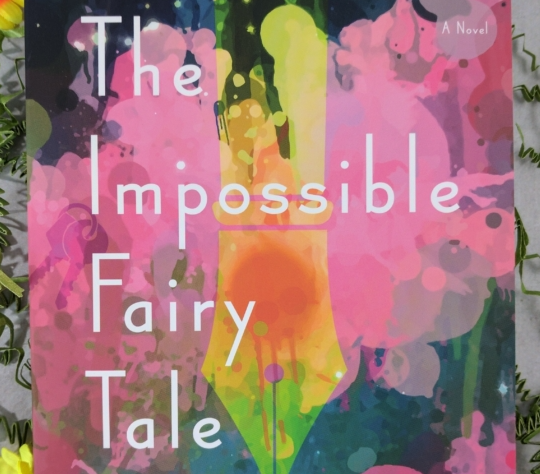Han Yujoo’s debut novel is chilling and surreal, raising questions about deep-seated human violence, and the nature of art-making. A review by Asymptote Executive Assistant Emma Holland.
The Impossible Fairytale pulls readers into its disorienting and brutal world, spinning a dark narrative of the nameless Child and her classmates. Later the perspective shifts into a meta-narrative—questioning and twisting ideas concerning language and the restraints of the novel as a literary form. Korean author Han Yujoo’s debut novel, translated by Janet Hong, The Impossible Fairytale is a wildly gripping page-turner, and ultimately a powerful yet unsettling read.
Through the narrative, Han explores the notion that violence is an ingrained part of society. Speaking at the Free Word Centre in London on July 10 at an author discussion hosted by the UK publisher, Titled Axis Press, Han talked of how “from a young age we are exposed to violence, it becomes normalized, a part of our everyday life…eating away at our minds.”
For the novel’s schoolchildren, particularly seen through the lives of the Child and the “lucky” Mia, violence has seeped into their everyday existence. In school, instead of the typical innocence of childhood games, the children display savagery, including brags about killing chicks bought from a street vendor in cruel ways or ripping the wings off butterflies. They kill birds by flinging marbles from slingshots, and then play a game where the boys throw the birds’ corpses at the squealing girls. Another favorite is the “fainting game,” where the children choke one another until someone passes out, revealing mixed feelings of horror and awe.
Adults are rarely present in such scenes, if at all, and it is clear that the children’s voices are not heard or valued in the adult world. The Child—who struggles with her identity and comes to school with fresh bruises and bloody fingers from ripped-off nails, signs of domestic abuse at home—has become invisible to those around her: “At school, she exists like a shadow. Or she has become a shadow and is absent.”
The Child’s way of finding her own voice is through writing her own coded journals, and by placing threats at the end of other children’s school journal entries in forged handwriting—“I despise you,” “I want to kill”— finally stirring up some concern from the teacher who threatens to take the class to the police station in an attempt to get a confession. The cruelty present in the Child’s life has regenerated inside of her, and throughout the narrative, she struggles with strong impulses, with the hypnotic, repetitive language growing stronger as the violence builds and sadly culminates in the chilling climax at the end of Part I.
While discussing her novel, Han talked about how in Korea, voices can be easily erased and a child’s voice in particular is not taken seriously. Almost no one is listening to the children, she says, and “it’s important for a child to have their own voice.” In the novel, we can see clearly what can happen when a child isn’t heard, and has been deemed invisible in their own world.
Just as the reader has reached the climax, Part II pans out to become a meta-narrative with a sense of immediate disorientation. The perspective shifts drastically as Han cleverly uses the latter part of the novel to question and reflect upon the Child’s actions, and to explore the inherent ideas behind writing, language and the inevitable restraints of literary forms.
Throughout the novel, language is mulled over, with the narrative often pausing to consider the phonetic quality of different words and sentences. Consider: “One, two, three. Three days later there may be new marks on her neck and the right side of her back. Mark, bark, dark, stark, she mumbles. She doesn’t mumble, it hurts, it hurts. Scar is bad. Because scar looks like scare. Ash is bad, too.”
Such interesting wordplay and experimental language presented many challenges tackled beautifully by translator Janet Hong who has retained the exquisite narrative and sense of play in the English translation. In the translator’s afterword, Hong refers to Anita Raja’s essay, “Translation as a Practice of Acceptance,” published in Asymptote, quoting how “the translator knows her own limits and yet, out of devotion, out of love, she is prepared to challenge them—or at least she chooses to try.” As a reader, I am grateful for Hong’s ability to push the limits, and for providing me the chance to come across such brave, compelling fiction I wouldn’t otherwise have had access to.
With her thrilling novel, Han Yujoo joins the growing movement of translated fiction written by female Korean authors. At the vanguard of this movement is Han Kang’s hyped and successful The Vegetarian, which won the Man Booker Prize last year, and also explored themes of violence within a relatively conservative Korean society. For readers who want to be challenged and have their expectations turned upside down, The Impossible Fairy Tale is one of the most oddly-riveting novels I have read in a long time.
Emma Holland is a London-based editor and writer, and is currently an executive assistant for Asymptote.
*****
Read more reviews:

